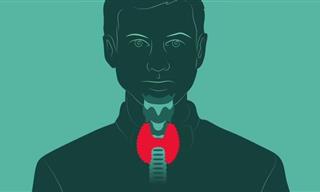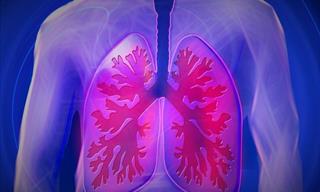Mouth breathing is an issue that arises in individuals that suffer from some sort of nasal obstruction, resulting in them having to breathe through their mouths. This can cause problems when it comes to sleeping, particularly for someone who has to share a bed with the afflicted individual. Let’s take a closer look at what causes this problem, what side effects it has, and tips on how to remedy it:
The Causes of Mouth Breathing

The primary cause of mouth breathing is some sort of blockage within the nasal passage. The nose is designed to act as a natural humidifier and filtering system for the air we breathe. When a blockage occurs, the mouth takes over. There are several reasons why nose blockages occur, namely nasal congestion as a result of allergies, sinus infections, colds, enlarged tonsils, enlarged adenoids, a deviated septum, enlarged turbinates, nasal polyps, the shape of the individual’s nose or obstructive sleep apnea.
Why is Nose Breathing Important?

Nose breathing assists mucus in the nasal passage to produce a small amount of nitric oxide gas, which increases oxygen absorption in the lungs. This is a highly important process, because a sustained oxygen deficiency can have a detrimental impact on health. Secondly, the nose is important for reducing the amount of harmful microbes and impurities found in air from entering into the body. Last but not least, the mucus lining in the nasal passage moisturizes and warms air before it reaches our lungs.
The Side Effects of Mouth Breathing
Mouth breathing has numerous negative effects on an individual’s health, with the first being an excessively dry mouth. Saliva plays a vital role in removing bacteria from the mouth, so if it happens to be dry, bacteria can proliferate, which in turn can result in other problems such as cavities. Furthermore, air inhaled through the mouth does not allow for as much oxygen to be absorbed into the bloodstream as air inhaled through the nose does.
Although the aforementioned difference might seem negligible at first glance, it can actually lead to high blood pressure and difficulty sleeping, not to mention increase the body’s inflammatory response and heart rate. On an even more serious level, mouth breathers can actually experience problems with their facial and dental development, such as a loss of cheekbone definition, a smaller lower jaw, gummy smiles, crooked teeth and weak chins. This effect is more pronounced in children, and therefore it is imperative for children who are mouth breathers to be assisted with overcoming their problem with urgency.
How to Stop Mouth Breathing at Night
1. Tape over your mouth

Despite this sounding a little extreme, it actually works. The key is to ensure that your mouth is securely taped over, so that breathing through your mouth isn’t an option when you’re sleeping. The best tape to use for this is one-inch paper tape. Apply it horizontally over your lips, ensuring that there’s just enough glue to keep the tape in place. This will make the task of removing the tape in the morning much easier. This method should not be used on children under the age of 5, or on individuals that consumed alcohol prior to going to bed.
Even though you might struggle a little keeping the tape on for the entire night, do your best to do so, because you’ll just worsen your condition if you don't. Should you be anxious about covering your mouth for an entire night’s sleep, try taping up just half of your mouth. You can also practice by taping your mouth up for half an hour before you go to sleep.
If you persist with this technique, then you’re giving yourself the best chance of curing your mouth breathing.
2. Train yourself to breathe through your nose
Use the power of your brain to stop yourself from mouth breathing. Make a conscious effort to breathe through your nose and keep your mouth closed at all times, and try to be aware of whenever you subconsciously try to breathe through your mouth. This isn’t easy, but with enough effort and dedication, you’ll be able to master it.
3. Practice nose-clearing exercises
Seeing as a nasal obstruction of some kind is the primary reason for mouth breathing, you should try this exercise, known as the Buteyko exercise. It’s an excellent way of restoring breathing volumes to normal levels. Here’s how to perform it:
a. Breathe through your nose normally for 2-3 minutes while in a sitting position, keeping your mouth closed.
b. Breathe in deeply, then close your nose by pressing it with your fingers. Hold the breath for as long as you can.
c. Exhale when you’re unable to hold your breath any longer.
d. Repeat the above steps several times.
NB: It’s crucial to keep your mouth closed at all times while performing the exercise.
4. Elevate your head while sleeping
If you’re sleeping in an awkward position, this can prevent you from being able to breathe through your nose, with the inevitable result being mouth breathing in order to compensate. Be sure to use a pillow in order to elevate your head sufficiently to allow for a clear and smooth passage for air to move through your nose.
Doing so will also help you prevent stomach acids and intestinal fluids from making their way up your throat. Another benefit that you will reap from elevating your head slightly while sleeping is reducing strain on your heart. Just make sure that you don’t elevate it too much, because then you’ll get into the realm of causing yourself back and bone problems!
5. Use a hat
This is an effective method if your child is a mouth breather. To apply it, you’ll need a hat with a strap that runs underneath the chin when worn. Cut almost all the material from it, so there’s just the structure of it left intact. Send your child to bed while wearing it, preventing their chin from dropping down, thus not allowing them to mouth-breathe.
6. Find a proper sleeping position
If you’re a mouth breather, sleeping on your back is not recommended. This is because sleeping in this position forces you to breathe more heavily, making it almost impossible to breathe only through your nose. Sleeping on your side is preferable, and also reduces strain on your back as an added benefit.
7. Eat a balanced diet

A poor diet will likely lead to obesity, and excessive weight can make breathing more difficult by increasing pressure on the lungs and nasal cavities. As a result, it’s recommended that you keep your weight under control if you happen to be a mouth breather, to alleviate pressure on your airways. In addition to reducing the pressure on your airways, there are a whole myriad of other benefits you can reap as a result of eating a balanced diet.
8. Remove all known allergens from your environment
Should you have allergies that you are wary of, you should ensure that your bedroom is entirely free of them. Examples of things that can cause you allergies are your pets, certain types of trees or flowers, or dust and bacteria caught in carpets and rugs. If your allergies flare up as a result of any of these things, be sure to banish them from you sleeping quarters.
9. Get an appointment with a myofunctional therapist
Failing all of the above, you should make an appointment with a myofunctional therapist. Such therapists are specialists in correcting disorders of facial muscles and functions. Such a trained professional will be able to guide you and give you specific advice on how to deal with, and overcome, your mouth breathing.
Content source: Vkool
Images (including cover) by Deposit Photos.
 Go to BabaMail
Go to BabaMail




























